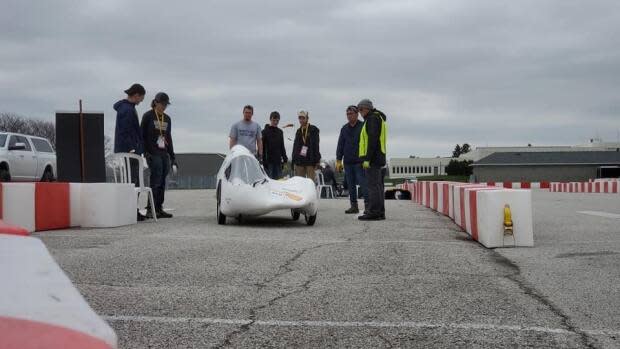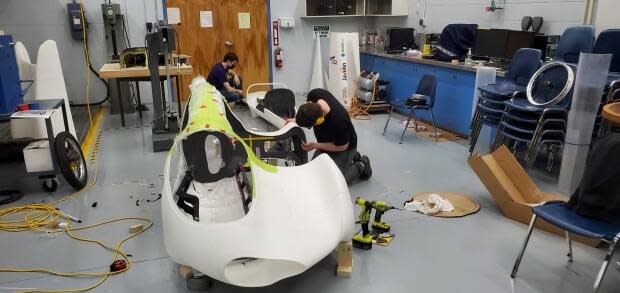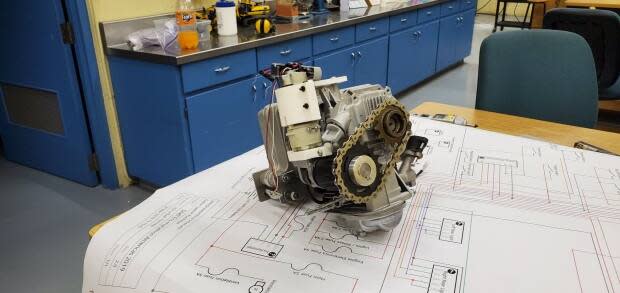Sask. Polytech team's 3D-printed car takes home award at U.S. competition

A group of engineering students from Saskatchewan Polytechnic may have created the cars of the future — and they're getting recognition for their work.
Students with the Saskatoon post-secondary school's eco-car team spent more than three weeks 3D printing and constructing two small vehicles for the Shell Eco-marathon at the Indianapolis Motor Speedway earlier this month.
The competition pits teams from across North America against each other to see which vehicles are the most fuel efficient and best constructed.
Races to test fuel efficiency were cancelled due to bad weather, but the team took home an award for technical innovation for their urban concept car.

It's not the first time Sask. Polytech has sent a team to the competition, but Tim Muench, an instructor and supervisor for the team, said this group's accomplishment is particularly impressive.
"Most teams don't get onto the track with their first car [in their] first year, so this group of students did an amazing job," said Muench.
Although the event is a competition, teams helped each other out and were friendly to work with, said Peter Mourre, one of the Sask. Polytech team members. He said making it as far as they did gave the team a boost of confidence.
"Some of the other teams didn't get as lucky, like to pass technical inspection," said Mourre. "It really made … us feel more appreciative about the work we'd done, and that we were able to pass technical inspection."
Ambitious automobiles
Most of the material for the two cars was 3D printed. That cut down on waste, as the team used only what they needed. Other material was recycled or repurposed, such as hockey sticks used for the frame of the cars.
The cars began with designs on a computer earlier in the semester.

"We try to get all of our dimensions correct," said Linden Herperger, a team member in his second year of mechanical engineering technology.
"From there, it's quite a challenge to take it from a 3D space on a computer into the real world."
The urban concept car uses an internal combustion engine from an ice auger, while the other car is powered by battery.
While not approved for use on public roads, Herperger said the car can be used on private property.
"They're no different than any sort of smaller go-kart or ATV really," he said. "They can get up to decent speeds and turn relatively well."

Mourre hopes the auto industry will take what his team — and others at the competition — have created and use it to improve fuel efficiency and vehicle weight.
"You never see 3D-printed cars being sold ... but it definitely is something that could happen in the future."


